
Elbląg: A Historic Gem by the Baltic
Elbląg, one of Poland's oldest cities, offers a blend of rich history and modern charm. Located on the eastern edge of the Vistula Lagoon, Elbląg boasts a captivating medieval Old Town that has been meticulously reconstructed after World War II. Walking through the cobbled streets, you'll encounter Gothic architecture, charming cafes, and vibrant markets. The Elbląg Canal, a marvel of 19th-century engineering, is a must-see, allowing visitors to experience unique boat lifts and picturesque scenery. The city's history is palpable, with landmarks like St. Nicholas Cathedral and the Elbląg Museum providing deep insights into its storied past. Beyond its historical attractions, Elbląg is also a gateway to the natural beauty of the Żuławy Wiślane region, perfect for outdoor enthusiasts interested in hiking, cycling, and bird watching. Elbląg's culinary scene is another highlight, offering traditional Polish dishes with a local twist. The city's restaurants and cafes serve hearty meals that reflect the region's agricultural bounty. Whether you're exploring its historical sites, taking a canal cruise, or savoring local delicacies, Elbląg promises an enriching and memorable experience.
Local tips in Elblag
- Visit the Elbląg Canal during the summer months to see the boat lifts in action.
- Explore the Old Town on foot to fully appreciate its architectural beauty.
- Try traditional Polish dishes at local restaurants for an authentic culinary experience.
- Check out local festivals and events, especially in the summer, to experience Elbląg's vibrant culture.
- Use Elbląg as a base to explore the nearby Żuławy Wiślane region for outdoor activities.
Elbląg: A Historic Gem by the Baltic
Elbląg, one of Poland's oldest cities, offers a blend of rich history and modern charm. Located on the eastern edge of the Vistula Lagoon, Elbląg boasts a captivating medieval Old Town that has been meticulously reconstructed after World War II. Walking through the cobbled streets, you'll encounter Gothic architecture, charming cafes, and vibrant markets. The Elbląg Canal, a marvel of 19th-century engineering, is a must-see, allowing visitors to experience unique boat lifts and picturesque scenery. The city's history is palpable, with landmarks like St. Nicholas Cathedral and the Elbląg Museum providing deep insights into its storied past. Beyond its historical attractions, Elbląg is also a gateway to the natural beauty of the Żuławy Wiślane region, perfect for outdoor enthusiasts interested in hiking, cycling, and bird watching. Elbląg's culinary scene is another highlight, offering traditional Polish dishes with a local twist. The city's restaurants and cafes serve hearty meals that reflect the region's agricultural bounty. Whether you're exploring its historical sites, taking a canal cruise, or savoring local delicacies, Elbląg promises an enriching and memorable experience.
When is the best time to go to Elblag?
Iconic landmarks you can’t miss
Family Amusement Park New Netherlands
Discover endless fun and excitement at Family Amusement Park New Netherlands, the ultimate destination for family adventures and thrilling rides in Nowe Pole.
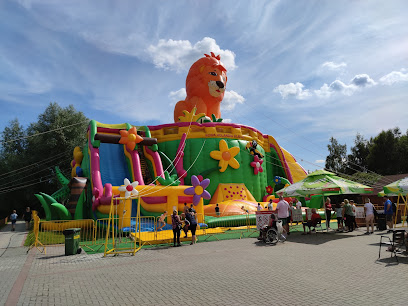
Żegluga Ostródzko - Elbląska
Experience the beauty of Elbląg's waterways with Żegluga Ostródzko-Elbląska, where scenic boat tours and rich history come together for an unforgettable adventure.
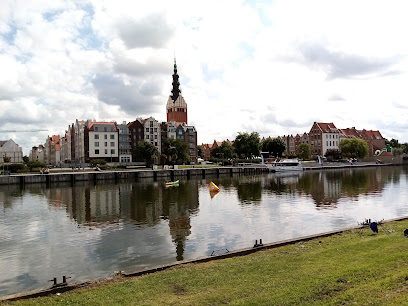
Brama Targowa
Explore Brama Targowa, a historical landmark in Elbląg that reflects the city's medieval charm and vibrant culture in a picturesque setting.
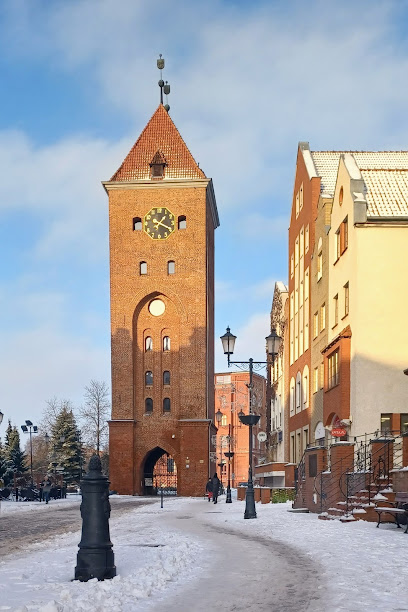
Museum of Archeology and History in Elblag
Explore the Museum of Archeology and History in Elblag for a captivating journey through Poland's rich cultural heritage and historical treasures.
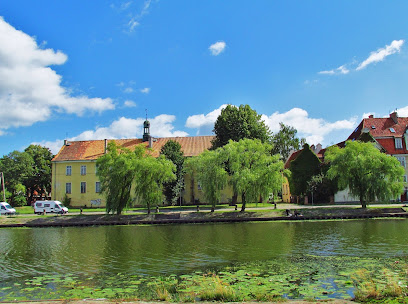
Bażantarnia
Explore Bażantarnia, Elbląg's beautiful park, where nature meets tranquility, perfect for families, picnics, and outdoor adventures in Poland.
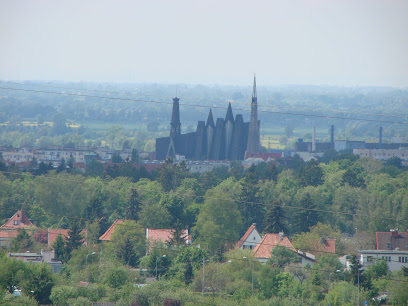
MJAZZGA
Discover the vibrant nightlife of Elbląg at MJAZZGA, a lively pub and live music venue that guarantees unforgettable evenings filled with great entertainment.
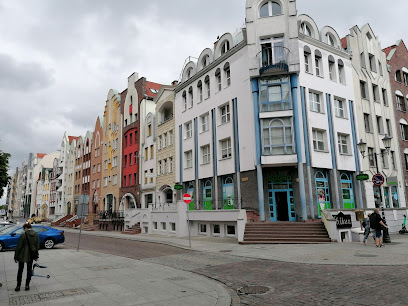
Wyspa Spichrzów w Elblągu
Explore the enchanting Wyspa Spichrzów in Elbląg, where history, culture, and scenic beauty come together for an unforgettable visit.
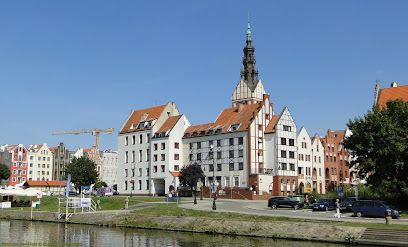
️ ELBLĄG (I LOVE ELBLĄG)
Explore Elbląg, a historical city rich in culture and beauty, where every corner tells a story and the Vistula Lagoon awaits your discovery.
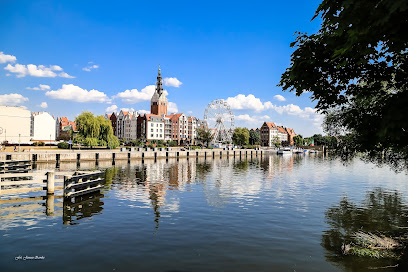
Old Pub Jaszczur
Experience the charm of Old Pub Jaszczur in Elbląg, where locally brewed beers and traditional Polish cuisine await in a cozy, inviting atmosphere.
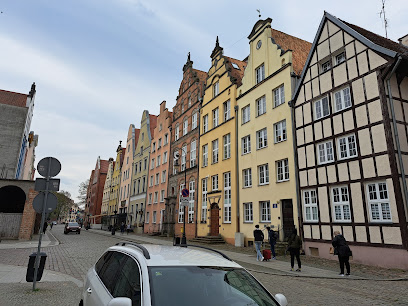
Wieża widokowa
Discover breathtaking views and rich history at Elbląg's Wieża Widokowa, a must-visit observation tower for every traveler.
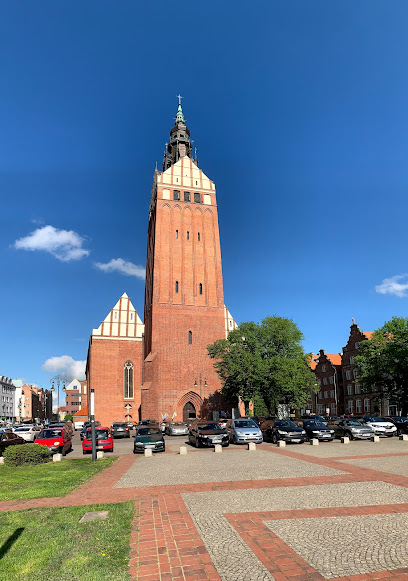
Ścieżka Kościelna w Elblągu
Explore the rich history and stunning architecture of Ścieżka Kościelna in Elbląg, a must-visit historical landmark that enchants every traveler.
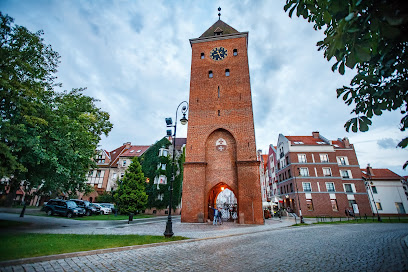
Elbląg
Discover the captivating charm of Elbląg, a riverside gem in Poland, where stunning natural beauty meets rich history and vibrant culture.
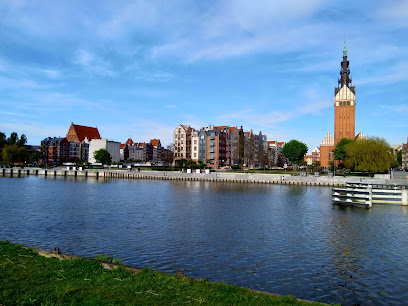
Pomnik przyrody Dąb Hoggo
Discover the Dąb Hoggo in Elbląg - a majestic ancient oak tree that symbolizes history, nature, and tranquility in Poland.
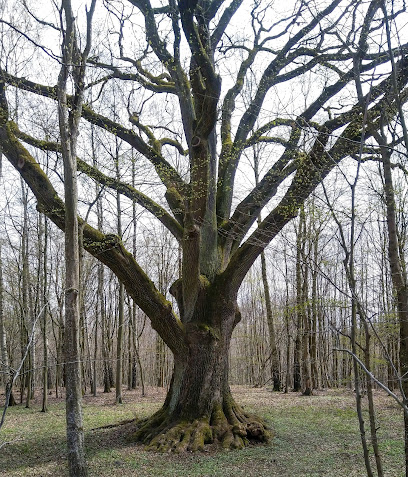
Pałac Augusta Abbega w Elblągu
Experience the elegance of the Palace of Augusta Abega in Elbląg, a historical landmark showcasing stunning architecture and rich cultural heritage.
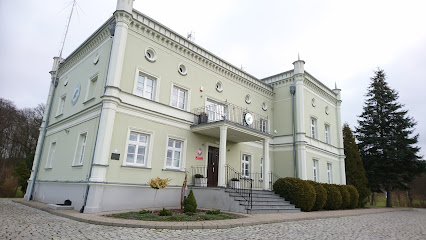
Dwór Bieland
Discover the charm of Dwór Bieland, a serene bed and breakfast in Elbląg, combining comfort and local culture for an unforgettable stay.

Unmissable attractions to see
Malbork Castle
Explore Malbork Castle, a UNESCO World Heritage site, and immerse yourself in the grandeur of medieval history and architecture in Poland.
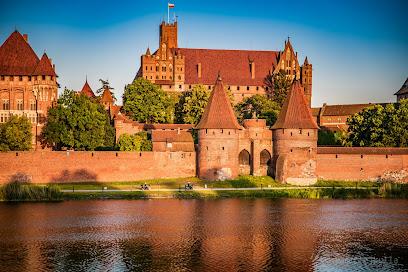
Muzeum Stutthof
Explore the profound history of Muzeum Stutthof, a Holocaust memorial that educates and commemorates the resilience of those affected by World War II.
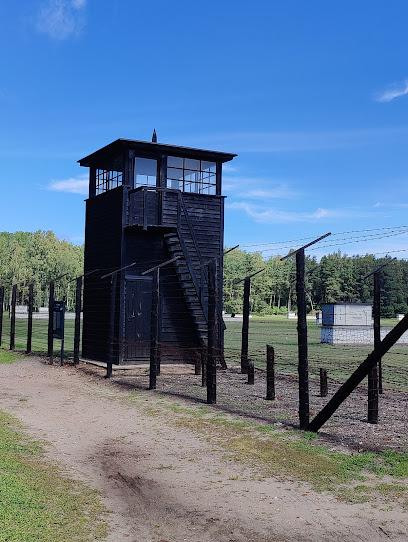
Plaża Stegna Morska
Explore the serene beauty of Plaża Stegna Morska, where golden sands meet the tranquil waters of the Baltic Sea, perfect for relaxation and adventure.
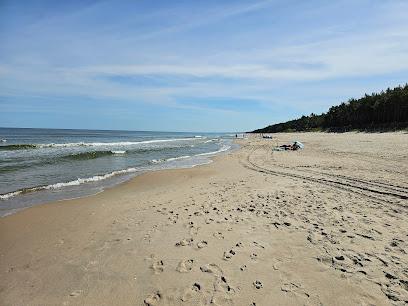
Family Amusement Park New Netherlands
Experience the thrill of Family Amusement Park New Netherlands in Nowe Pole, Poland, where excitement and family fun come together in a vibrant atmosphere.
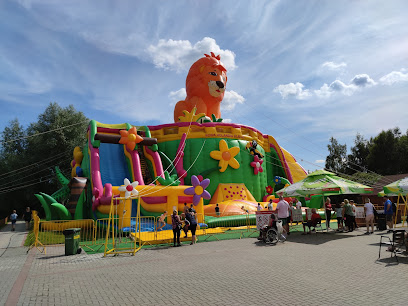
Teutonic castle in Sztum
Discover the Teutonic Castle in Sztum, a historical gem offering stunning architecture and rich medieval heritage amidst picturesque surroundings.
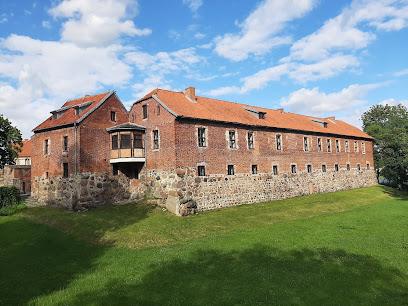
Museum of Archeology and History in Elblag
Discover Elblag's rich history at the Museum of Archeology and History, where ancient artifacts and engaging exhibits await every curious traveler.
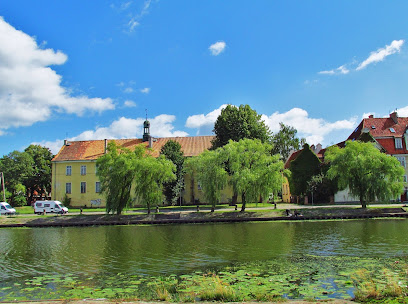
Park Modrzewie
Explore the serene beauty of Park Modrzewie in Elbląg, a lush green haven perfect for relaxation, recreation, and family fun amidst nature.
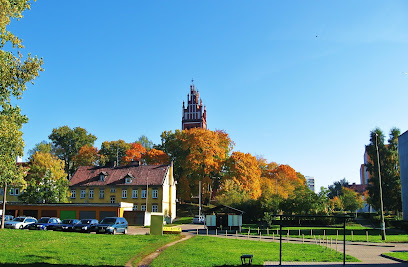
Bażantarnia
Explore Bażantarnia, Elbląg's natural paradise, with scenic trails, lush greenery, and tranquil spots perfect for relaxation and recreation.
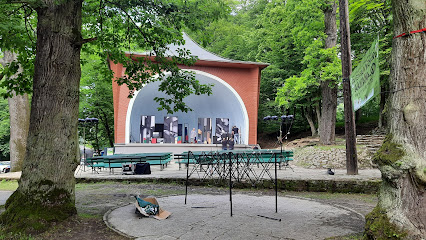
Góra Chrobrego
Discover stunning views and scenic hiking trails at Góra Chrobrego, a must-visit tourist attraction in Elbląg, Poland.
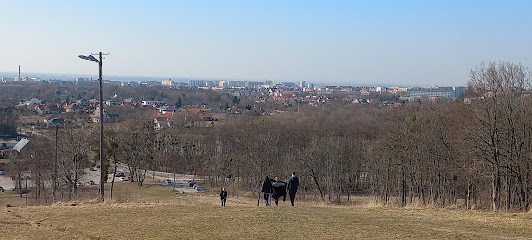
Elbląg Canal
Explore the scenic Elbląg Canal, a UNESCO World Heritage site, where history meets stunning natural landscapes in Poland.
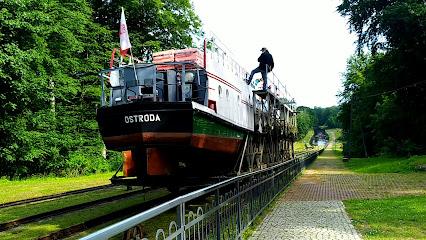
Elbląg Upland Landscape Park
Immerse yourself in the natural beauty of Elbląg Upland Landscape Park, where lush landscapes and diverse wildlife await every nature enthusiast.
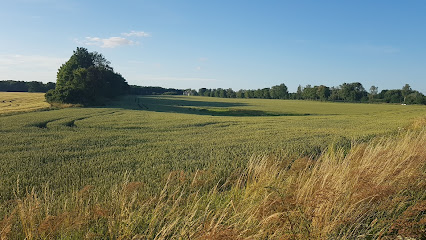
Goose Mountain - Stone Circle
Discover the mystical Goose Mountain Stone Circle in Elbląg, a captivating tourist attraction rich in history and surrounded by stunning natural beauty.
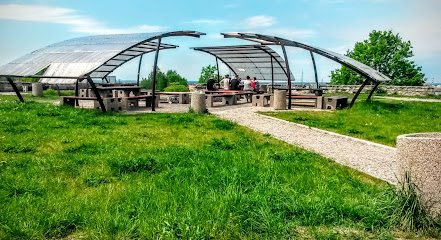
️ ELBLĄG (I LOVE ELBLĄG)
Explore the enchanting city of Elbląg in Poland, where history meets vibrant culture along beautiful waterfronts.
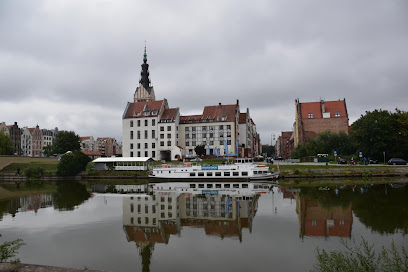
Wieża widokowa
Experience breathtaking views and rich history at the Elbląg Observation Tower, a must-visit attraction for every traveler in Poland.
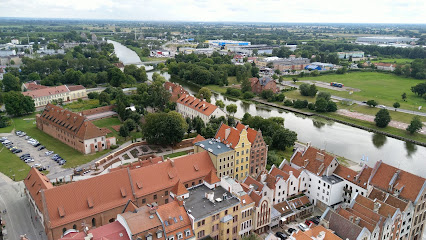
Wodospad na rzece Kumiela w Elblągu
Experience the serene beauty of Kumiela Waterfall in Elbląg, a natural wonder perfect for relaxation, photography, and outdoor adventures.
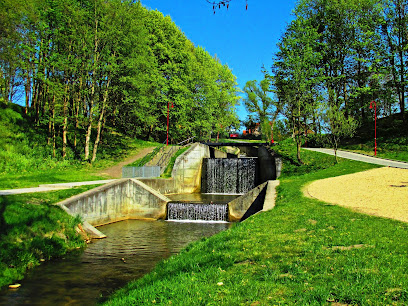
Essential places to dine
Nowa Holandia - Grill Bar i Restauracja
Experience authentic Polish barbecue at Nowa Holandia - Grill Bar i Restauracja, where flavor meets tradition in every delicious bite.
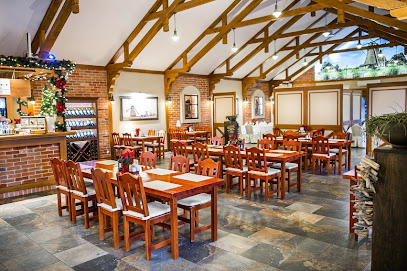
Studnia Smaków
Experience authentic Polish cuisine at Studnia Smaków in Elbląg - where tradition meets taste in every dish.
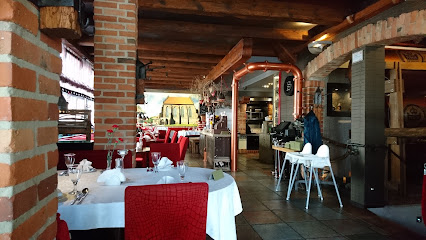
Oliwka Pizzeria i Restauracja
Discover Oliwka Pizzeria i Restauracja: Your destination for authentic Italian cuisine and delightful pizzas in Elbląg.
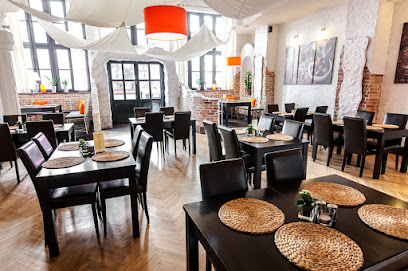
Specjal Pub
Experience the best of Polish craft beer and local cuisine at Specjal Pub in Elbląg - where flavor meets tradition.
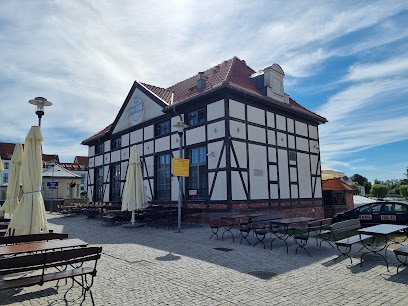
Focus Hotel Premium Elbląg
Experience luxury at Focus Hotel Premium Elbląg with top-tier spa services, vibrant nightlife, and comfortable accommodations in the heart of Poland.
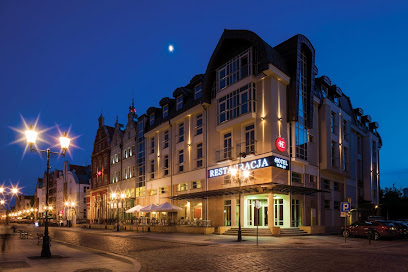
Restauracja Stara Karczma
Experience authentic Polish cuisine at Restauracja Stara Karczma in Elbląg – where tradition meets flavor in a warm atmosphere.
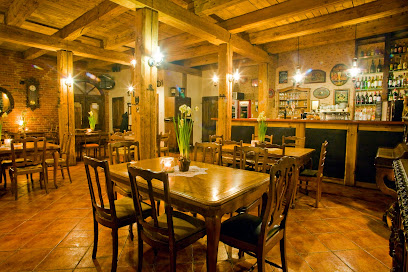
Restauracja Strzecha
Discover authentic Italian cuisine at Restauracja Strzecha in Elbląg - where every dish tells a story of flavor and tradition.
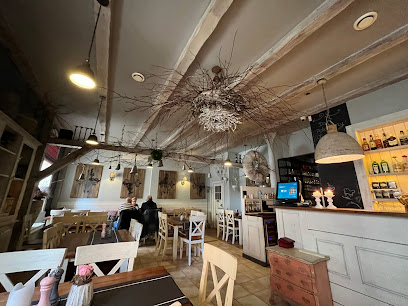
Restauracja Zmysły
Experience culinary excellence at Restauracja Zmysły in Elbląg - where modern European cuisine meets exceptional service.
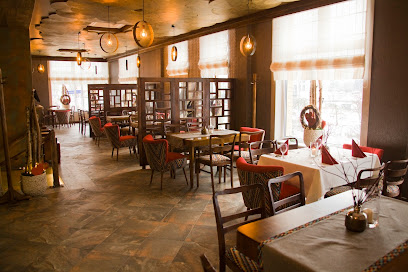
Amore Mio Grill & pizza
Discover authentic Polish cuisine at Amore Mio Grill & Pizza in Elbląg – where every meal is a celebration of flavor.
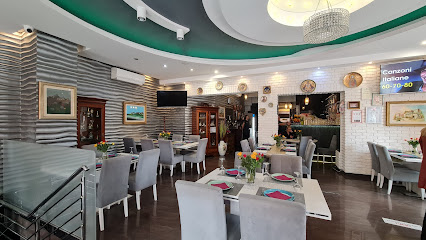
Garam Masala Indyjska Restauracja Elbląg
Discover the rich flavors of India at Garam Masala Indyjska Restauracja in Elbląg - where every meal is a celebration of spices.
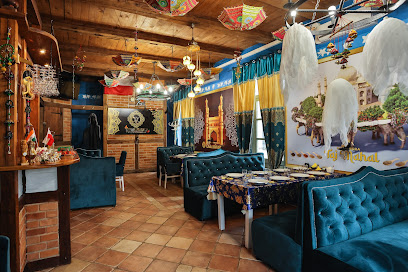
Restauracja Wiarus Imprezy okolicznościowe Wesela Sala weselna
Experience authentic Polish cuisine at Restauracja Wiarus in Elbląg—where tradition meets taste in a cozy setting perfect for all occasions.
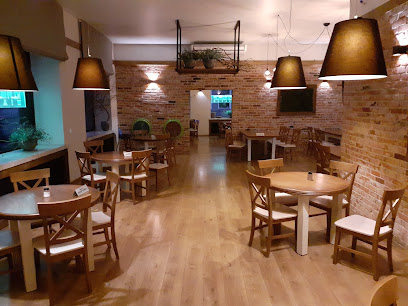
Restauracja Modosa
Experience the best of Asian fusion cuisine at Restauracja Modosa in Elbląg - where every bite tells a story.
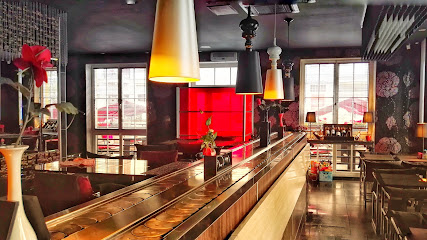
Restauracja Złote Jajo
Experience authentic Polish cuisine at Restauracja Złote Jajo in Elbląg - where tradition meets taste.
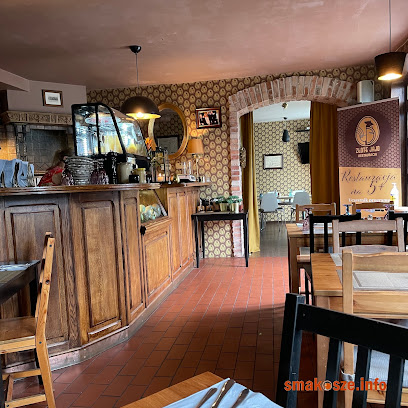
SłodKAWA
Discover SłodKAWA in Elbląg – A dessert paradise offering exquisite sweets and delightful ambiance for all visitors.
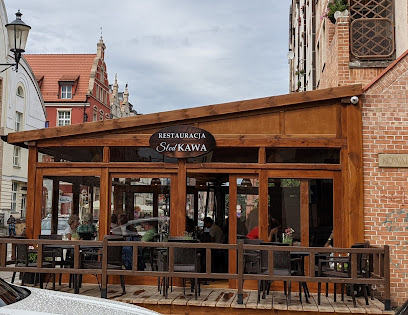
Restauracja Miko Sushi&More
Savor authentic Japanese cuisine at Restauracja Miko Sushi&More in Elbląg - your destination for exquisite sushi and ramen delights.
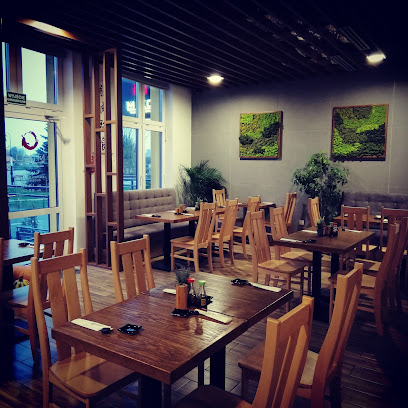
Markets, malls and hidden boutiques
Centrum Handlowe Ogrody
Explore the bustling Centrum Handlowe Ogrody, Elbląg's top shopping mall offering diverse stores, dining, and entertainment for all ages.
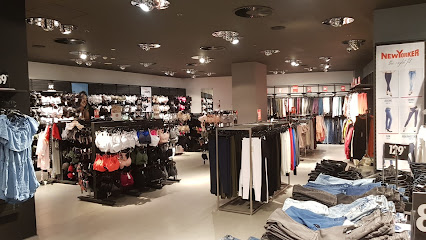
Olika
Discover the latest trends and timeless styles at Olika, Elbląg's leading women's clothing store, offering quality apparel and accessories.
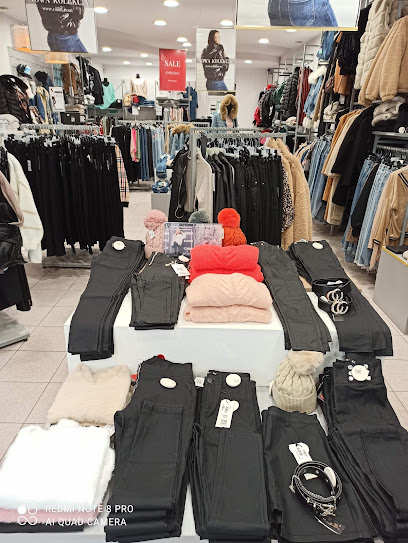
MORO-MILITARIA
Explore Moro-Militaria in Elbląg: A unique army and navy surplus shop filled with military history and collectibles for enthusiasts and casual visitors.
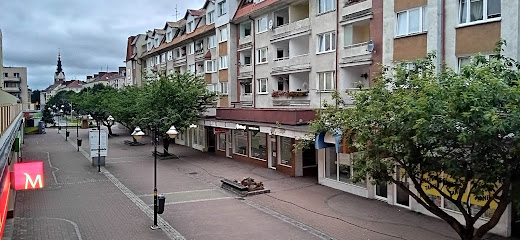
Quo Vadis
Discover a unique blend of literature, religious goods, and fine wines at Quo Vadis, the must-visit bookstore in Elbląg.
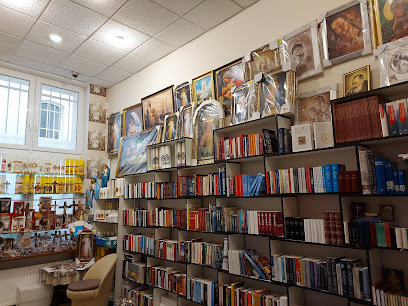
Świat Udanych Zakupów
Experience the joy of shopping at Świat Udanych Zakupów in Elbląg, where a diverse selection of local and international products awaits you.
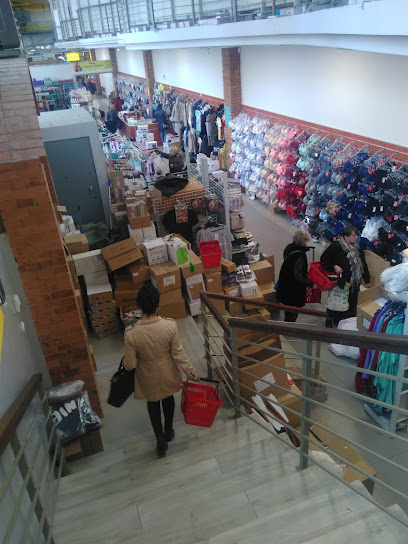
Plastuś
Discover Plastuś in Elbląg - Your one-stop hobby store for craft supplies, models, and collectibles that inspire creativity and fun.
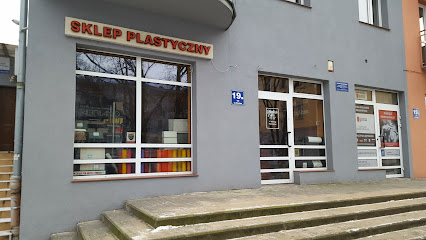
Świat Prezentów | Elbląg, balony na hel, souvenirs
Explore the essence of Elbląg at Świat Prezentów, where unique souvenirs and local treasures await every traveler.
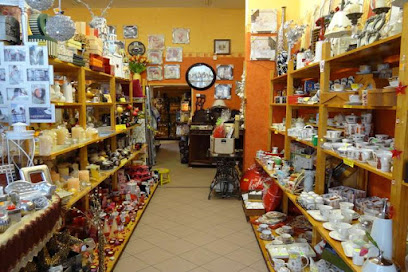
SECONDLY Elbląg
Discover sustainable fashion at Secondly Elbląg, a vintage haven offering a wide range of unique, gently-used clothing for all ages.
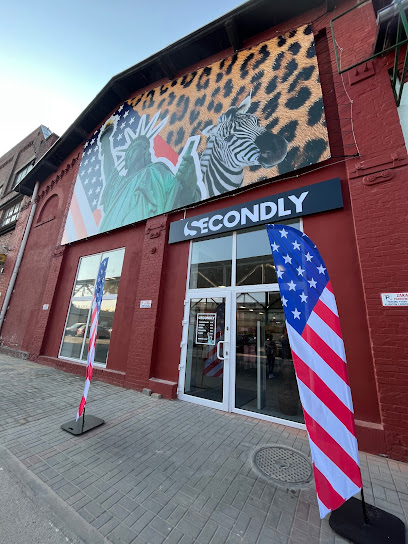
Dealz
Shop smart and save big at Dealz, the ultimate discount store in Elbląg, where quality meets affordability for every traveler.
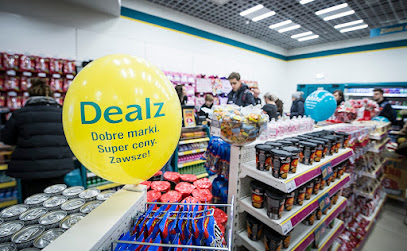
Radex s.c.
Discover Radex s.c. in Elbląg, your go-to baby store for high-quality children's clothing, toys, and accessories in a vibrant shopping atmosphere.
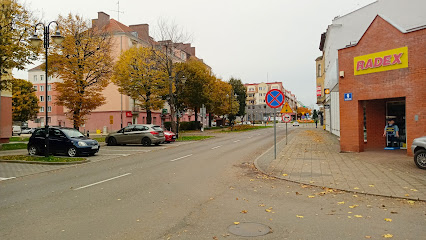
EDEN Butik
Discover trendy clothing, stylish shoes, and quality underwear at EDEN Butik, Elbląg's premier fashion destination for tourists.
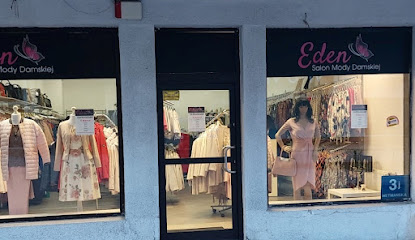
Szwajcarskie Scyzoryki Victorinox, noże, latarki, wykonywanie grawerów laserowych, prezenty - ECBP s.c.
Explore the Victorinox Swiss Army Shop in Elbląg for unique gifts, Swiss knives, and personalized engraving services to commemorate your visit.
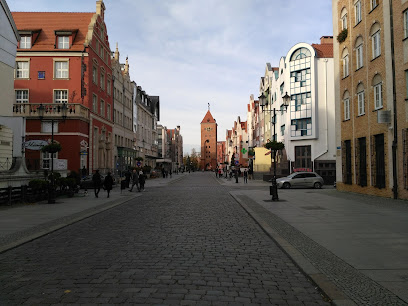
Planeta Sport
Discover top-quality sportswear at Planeta Sport in Elbląg, where fitness meets fashion for every athlete.
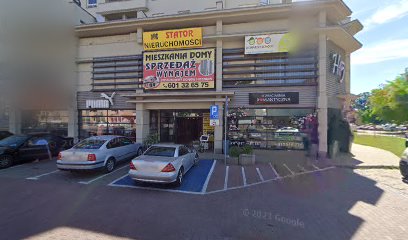
Galeria Starocie
Explore Galeria Starocie in Elbląg, a treasure trove of antiques and vintage collectibles that celebrate history and craftsmanship.
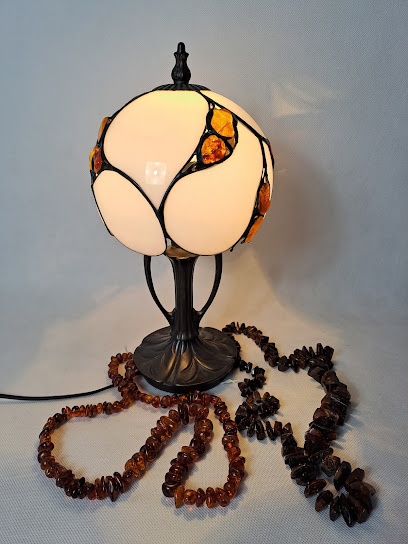
Moro Style
Discover Moro Style in Elbląg: Your go-to shop for military gear, tactical clothing, and unique army and navy surplus items.
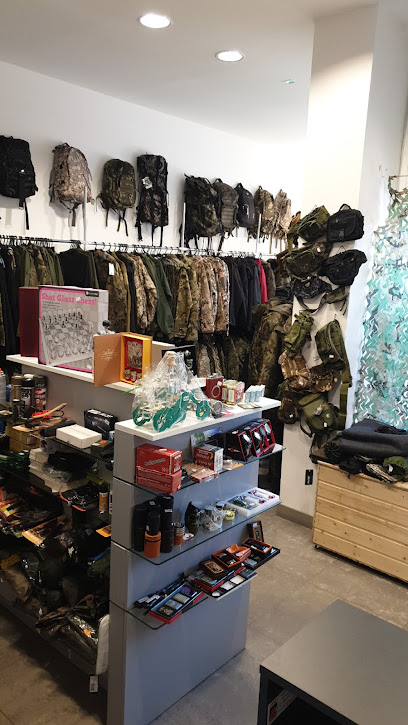
Essential bars & hidden hideouts
Specjal Pub
Experience the best of Polish craft beer and delightful cuisine at Elbląg's renowned Specjal Pub, a must-visit brewpub for all beer enthusiasts.
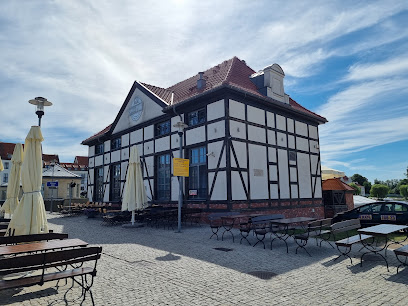
Bar Kalinka
Experience the charm of Polish hospitality at Bar Kalinka, a delightful bar in Elbląg offering local drinks and a cozy atmosphere.
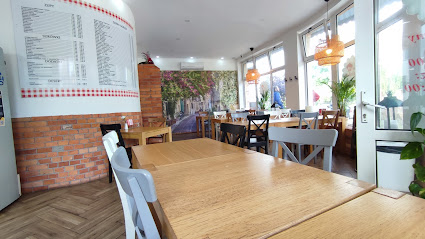
Sąsiedzi
Discover the vibrant atmosphere of Sąsiedzi in Elbląg, where delicious pizza, local brews, and live entertainment await you.
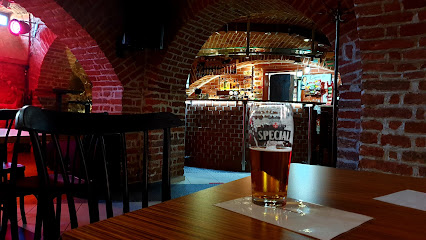
Szynk - Craft Beer & Pizza
Discover Szynk: Elbląg's premier destination for craft beer and delicious pizza, blending a vibrant atmosphere with authentic local flavors.
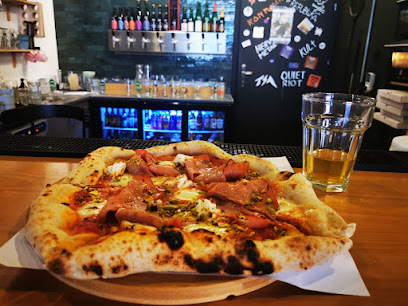
Malva. PHU
Discover the vibrant atmosphere and local brews at Malva. PHU, Elbląg's favorite pub for an authentic Polish experience.
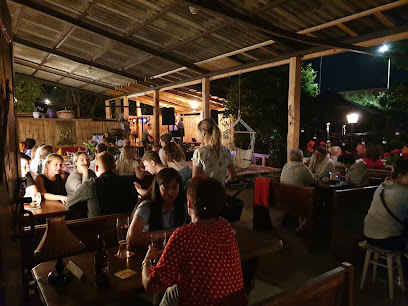
pub Czarny Kot
Experience the essence of Elbląg at Pub Czarny Kot, where local brews meet traditional Polish cuisine in a cozy atmosphere.
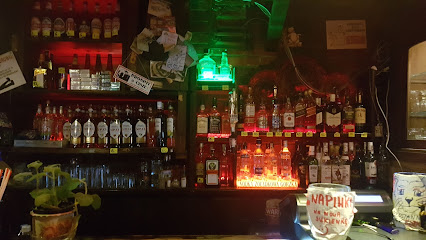
Highlander Rock Pub
Experience the vibrant nightlife of Elbląg at Highlander Rock Pub, a cocktail bar renowned for its creative drinks and lively atmosphere.
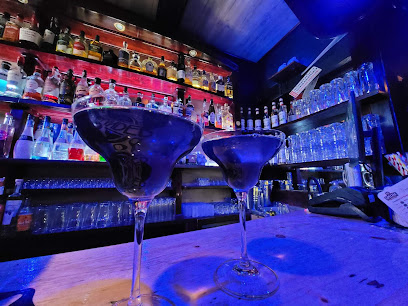
Krypta
Experience the best of Elbląg's craft beer scene at Krypta, a cozy brewpub offering local brews and a warm, inviting atmosphere.
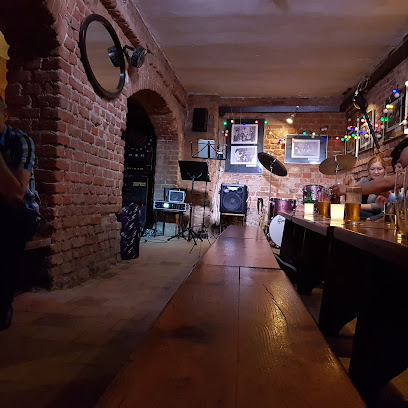
WestSide pub
Discover the vibrant atmosphere and unique brews at WestSide Pub, Elbląg's favorite brewpub, perfect for beer lovers and social butterflies alike.
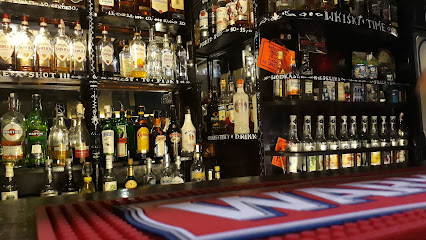
Old Pub Jaszczur
Experience the best of Polish craft beer and traditional cuisine at Old Pub Jaszczur - a brewpub gem in Elbląg.
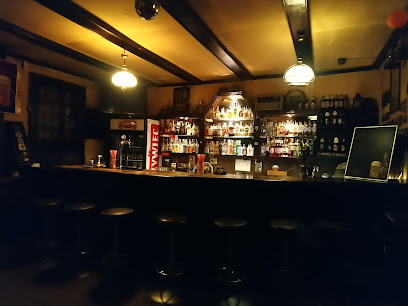
Pub Biblioteka
Experience the vibrant atmosphere and craft brews at Pub Biblioteka, Elbląg's premier brewpub offering a unique taste of local culture.
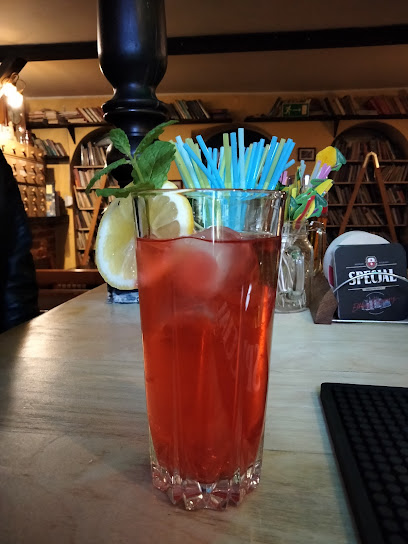
Magiel Club & Pub
Experience the vibrant nightlife of Elbląg at Magiel Club & Pub, a dynamic brewpub and disco club perfect for socializing and dancing.
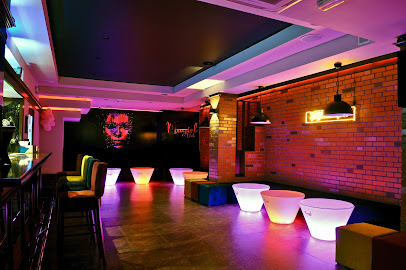
Bar Gyros
Experience the flavors of Greece at Bar Gyros in Elbląg, where delicious gyros and a vibrant atmosphere await every visitor.
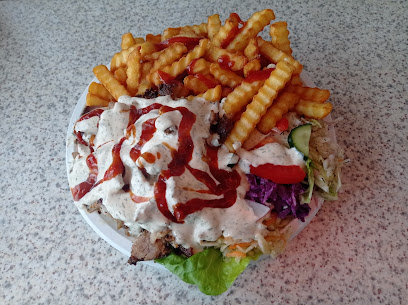
Dom Rektora
Experience the authentic flavors of Polish cuisine at Dom Rektora, a charming grill restaurant in Elbląg with stunning riverside views.
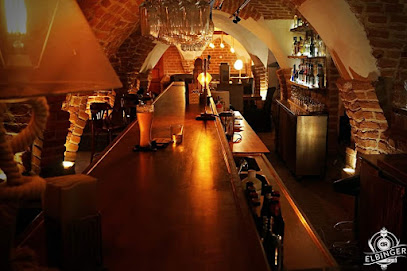
Local Phrases
-
- HelloCześć
[cheh-shch] - GoodbyeDo widzenia
[doh vee-dzen-yah] - YesTak
[tahk] - NoNie
[nyeh] - Please/You're welcomeProszę
[proh-sheh] - Thank youDziękuję
[jen-koo-yeh] - Excuse me/SorryPrzepraszam
[psh-eh-prah-sham] - How are you?Jak się masz?
[yahk sh-eh mah-sh] - Fine. And you?Dobrze. A ty?
[doh-bzheh. ah tih] - Do you speak English?Czy mówisz po angielsku?
[chi moo-vish poh ahn-gyehl-skoo] - I don't understandNie rozumiem
[nyeh roh-zoo-myehm]
- HelloCześć
-
- I'd like to see the menu, pleaseChciałbym zobaczyć menu, proszę
[h-chyah-bim zoh-bah-ch-ch meh-noo, proh-sheh] - I don't eat meatNie jem mięsa
[nyeh yehm myeh-sah] - Cheers!Na zdrowie!
[nah zdroh-vee-eh] - I would like to pay, pleaseChciałbym zapłacić, proszę
[h-chyah-bim zah-plah-chich, proh-sheh]
- I'd like to see the menu, pleaseChciałbym zobaczyć menu, proszę
-
- Help!Pomoc!
[poh-mohts] - Go away!Idź sobie!
[ee-j shoh-b-yeh] - Call the Police!Zadzwoń po policję!
[zahd-zvon poh po-lee-tsyeh] - Call a doctor!Zadzwoń po lekarza!
[zahd-zvon poh leh-kah-zah] - I'm lostZgubiłem się
[zgoo-bye-wem sh-ch] - I'm illJestem chory
[yeh-stem hoh-rih]
- Help!Pomoc!
-
- I'd like to buy...Chciałbym kupić...
[h-chyah-bim koo-pich] - I'm just lookingTylko się rozglądam
[tih-koh sh-ch rohz-gwah-dahm] - How much is it?Ile to kosztuje?
[ee-leh toh koh-sh-too-yeh] - That's too expensiveTo za drogo
[toh zah droh-goh] - Can you lower the price?Czy możesz obniżyć cenę?
[chi moo-zhesh ohb-nee-ooch cheh-neh]
- I'd like to buy...Chciałbym kupić...
-
- What time is it?Która jest godzina?
[k-too-rah yest goh-dzee-nah] - It's one o'clockJest pierwsza
[yest pyeh-vee-shah] - Half past (10)Pół do (10)
[poow doh] - MorningRano
[rah-noh] - AfternoonPopołudnie
[poh-poo-wood-nyeh] - EveningWieczór
[vyeh-choor] - YesterdayWczoraj
[v-choh-rah-y] - TodayDziś
[jeesh] - TomorrowJutro
[yoo-troh] - 1Jeden
[yeh-den] - 2Dwa
[dvah] - 3Trzy
[tshih] - 4Cztery
[ch-teh-rih] - 5Pięć
[pyen-ch] - 6Sześć
[sheh-shch] - 7Siedem
[sh-ye-dem] - 8Osiem
[oh-shem] - 9Dziewięć
[dzyeh-ven-ch] - 10Dziesięć
[dzyeh-shen-ch]
- What time is it?Która jest godzina?
-
- Where's a/the...?Gdzie jest...?
[g-dyeh yest] - What's the address?Jaki jest adres?
[yah-ki yest ah-dres] - Can you show me (on the map)?Czy możesz mi pokazać (na mapie)?
[chi moo-zhesh mee poh-kah-zah-ch (nah mah-pyeh)] - When's the next (bus)?Kiedy jest następny (autobus)?
[kyeh-dih yest nah-step-ny (ow-toh-boos)] - A ticket (to ....)Bilet (do ....)
[bee-let (doh)]
- Where's a/the...?Gdzie jest...?
History of Elblag
-
Elblag, located in northern Poland, was founded in 1237 by the Teutonic Knights. Established as a strategic trading post, the town quickly grew in significance due to its position along the Elblag River, providing access to the Vistula Lagoon and the Baltic Sea. It became a key member of the Hanseatic League, an influential commercial and defensive confederation of merchant guilds and market towns in Northwestern and Central Europe.
-
During the 14th century, Elblag flourished as a major trading hub. The city was renowned for its shipbuilding industry, producing vessels that were pivotal to the Hanseatic League's trading dominance. Elblag's wealth during this period is evidenced by its impressive Gothic architecture, including St. Nicholas Cathedral and the Old Town Market.
-
Elblag's strategic importance made it a target during the Swedish-Polish wars of the 17th century. The city was occupied by Swedish forces in 1626 and again in 1655. These invasions led to significant destruction and economic decline. Despite these setbacks, Elblag managed to rebuild and regain some of its former prosperity by the late 17th century.
-
In 1772, Elblag became part of the Kingdom of Prussia following the First Partition of Poland. Under Prussian rule, the city experienced industrial growth, with the establishment of new factories and infrastructure improvements. Elblag's integration into the Prussian state also brought cultural and administrative changes, shaping its development in the 19th century.
-
Elblag suffered extensive damage during World War II, with much of its historic Old Town being destroyed in 1945. After the war, the city was transferred from Germany to Poland as part of the Potsdam Agreement. The post-war period saw a massive reconstruction effort, with many of the city's historic buildings being meticulously restored, preserving Elblag's rich architectural heritage.
-
Today, Elblag is a vibrant city that blends its historical legacy with modern development. The restoration of the Old Town has created a picturesque area that attracts tourists from all over the world. Cultural events, museums, and historical sites, such as the Elblag Canal, continue to celebrate the city's diverse heritage. Elblag's dynamic cultural scene, combined with its historical landmarks, makes it a fascinating destination for those interested in exploring the rich tapestry of Polish history.
Elblag Essentials
-
Elblag is located in northern Poland and is well-connected by various modes of transportation. The nearest international airport is Gdansk Lech Walesa Airport, approximately 70 kilometers away. From the airport, you can take a train, bus, or taxi to Elblag. The train journey from Gdansk to Elblag takes about 1.5 to 2 hours. Alternatively, if you are driving, the A1 and S7 highways connect Elblag to other major cities in Poland.
-
Elblag offers a range of transportation options for visitors. The city has an efficient public transport system, including buses and trams, which connect different parts of the city. Tickets can be purchased at kiosks, ticket machines, or directly from the driver. Taxis are readily available and can be hailed on the street or booked through apps. For those who prefer to explore on their own, car rentals are available, and the city is also bike-friendly with several rental options and cycling paths.
-
The official currency in Poland is the Polish Zloty (PLN). Credit and debit cards are widely accepted in hotels, restaurants, and shops. However, it is advisable to carry some cash for smaller establishments, markets, or for use in rural areas. ATMs are readily available throughout Elblag, and currency exchange offices can be found in the city center and major tourist areas.
-
Elblag is generally a safe city for tourists. However, as with any destination, it is important to take standard precautions. Avoid walking alone at night in poorly lit or unfamiliar areas, and keep an eye on your belongings in crowded places. While Elblag does not have specific high-crime areas targeting tourists, it is always best to stay vigilant and aware of your surroundings.
-
In case of emergency, dial 112 for immediate assistance, which connects you to police, fire, and medical services. Elblag has several medical facilities, including hospitals and clinics that can provide emergency care. It is recommended to have travel insurance that covers medical emergencies. For minor health issues, pharmacies are available throughout the city where you can purchase over-the-counter medications.
-
Fashion: Do dress modestly, especially when visiting religious sites. Avoid wearing overly revealing clothing. Religion: Do respect local customs and traditions. Be quiet and respectful when visiting churches and other religious sites. Public Transport: Do be respectful and give up your seat to elderly passengers, pregnant women, and people with disabilities. Don't eat or drink on public transport. Greetings: Do greet people with a polite 'Dzień dobry' (Good day) or a handshake. Eating & Drinking: Do try local delicacies and accept food offerings graciously. Don't refuse hospitality, as it is considered impolite.
-
To experience Elblag like a local, visit the local markets such as the Elblag Market Hall, where you can buy fresh produce and traditional Polish goods. Engage with locals, as they are often friendly and willing to share stories about the city's history and culture. Don't miss visiting the Elblag Canal, one of the most unique waterways in Europe, offering boat trips through a series of ramps and locks. For a unique experience, take a stroll down the Old Town, which has been carefully reconstructed to reflect its historical architecture.
Trending Landmark in Elblag
-
Family Amusement Park New Netherlands
-
Żegluga Ostródzko - Elbląska
-
Brama Targowa
-
Museum of Archeology and History in Elblag
-
Bażantarnia
-
MJAZZGA
-
Wyspa Spichrzów w Elblągu
-
️ ELBLĄG (I LOVE ELBLĄG)
-
Old Pub Jaszczur
-
Wieża widokowa
-
Ścieżka Kościelna w Elblągu
-
Elbląg
-
Pomnik przyrody Dąb Hoggo
-
Pałac Augusta Abbega w Elblągu
-
Dwór Bieland
Nearby Cities to Elblag
-
Things To Do in Gdansk
-
Things To Do in Sopot
-
Things To Do in Olsztyn
-
Things To Do in Torun
-
Things To Do in Bydgoszcz
-
Things To Do in Klaipėda
-
Things To Do in Suwalki
-
Things To Do in Warsaw
-
Things To Do in Poznan
-
Things To Do in Marijampolė
-
Things To Do in Lodz
-
Things To Do in Bialystok
-
Things To Do in Liepaja
-
Things To Do in Kaunas
-
Things To Do in Šiauliai










